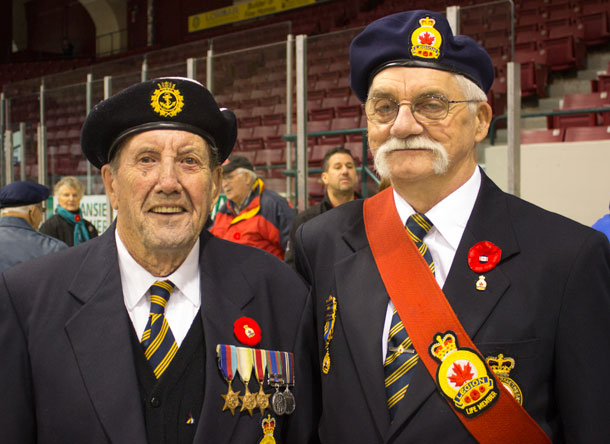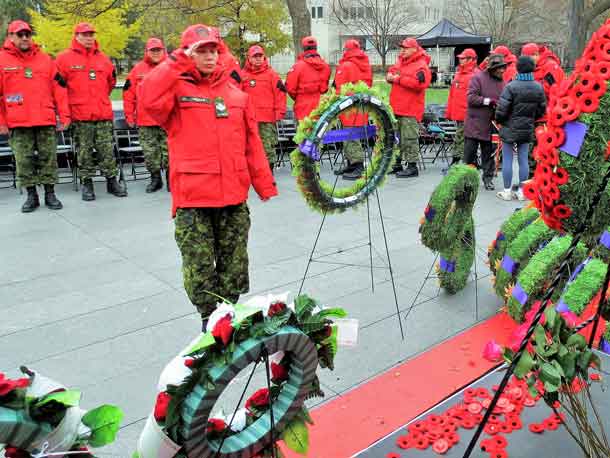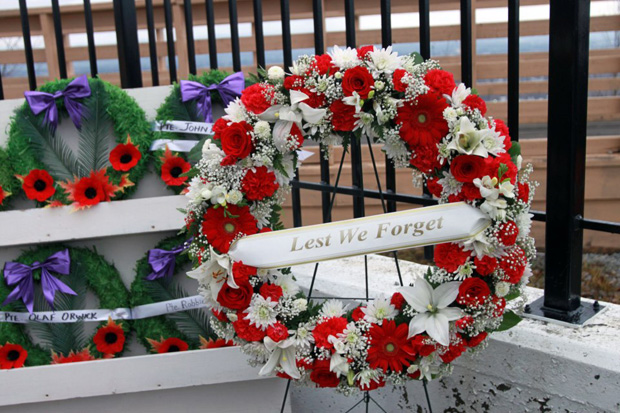THUNDER BAY – As Canada prepares to pay tribute to the men and women who have fought and died for our country this Remembrance weekend, Ancestry, the world’s largest online family history resource, has launched a key collection of detailed records pertaining to fallen soldiers from the Second World War.
The WWII Service Files of War Dead, 1939-1947 collection contains over 29,000 records of Canadian military personnel killed in action during the conflict. The collection, consisting of more than two million images, includes a variety of different documents for each soldier. From attestation papers, to medical history forms and even correspondence to family members back in Canada, this collection can help tell a more in-depth story of what these war heroes were like during their time in conflict.
Each service file contains an average of 52 pages of personal information.
The records, digitized and archived by Ancestry, were originally compiled by Library and Archives Canada as part of the Canadian school curriculum, and will be available to search for free online from November 6 to November 11, along with Ancestry’s entire collection of military records – which includes more than 4.4 million records pertaining to Canada alone.
“The most incredible part about this new collection is the sheer amount of detail revealed about these individuals. Records of promotions or tributes written by comrades help bring to light the true heroism of these soldiers during an incredibly terrifying time, and will undoubtedly instill pride among living relatives of these brave souls today,” says Kevin James, PhD, Professor, Department of History at University of Guelph. “The other benefit of this collection is that it can help shed light on what life in Canada was like during the war. From hand-written letters, to telegraphs informing Canadians at home that a family member was missing in action, these records provide fascinating insight into the life and times of the WWII era.”
The incredibly detailed collection helps to paint a clearer picture of some of Canada’s most heroic soldiers who served and tragically perished in the Second World War, including:
- John Robert Osborn (1899 – 1941). Aged 42, Osborn was one of Canada’s older soldiers, He was the first Canadian awarded a Victoria Cross in the Second World War, after bravely sacrificing himself by throwing himself on a grenade to save his comrades during the Battle of Hong Kong. Osborn’s Certificate of Medical Examination on Ancestry, reveals that Osborn wore coloured glasses overseas for pink eye (referred to as conjunctivitis) contracted from gas, frequently used during the First World War.
- Samuel Moses (“Moe”) Hurwitz (1910 – 1944). Born and raised in Montreal, Hurwitz was the most highly decorated non-commissioned member of the Canadian Grenadier Guards, earning the Military Medal in August of 1944, and the Distinguished Conduct Medal just six weeks later. In October 1944, following an attack in the Netherlands, Hurwitz was captured by the Germans, and died of his wounds as a prisoner of war – a notification his family received in the form of a telegraph, according to Ancestry records. Other records available on Ancestry for Hurwitz include a six-page tribute to Hurwitz in “The ’52 Natural”, Canadian Grenadier Guards Official Publication Overseas, entitled “Some Never Die”. According to the tribute, stories of Hurwitz, “all display a strain of courage and steadfastness … that put to shame the tinsel heroes of the silver screen, and renew in us our wavering belief in the future of the human race that can number such men in its ranks.”
- David Ernest Hornell (1910 – 1944). Originally born on Toronto Islands, Hornell enlisted in the Royal Canadian Air Force (RCAF) in January 1941, and was the first member of the RCAF to be awarded the Victoria Cross for his last, and final mission in June of 1944, when he successfully sunk a German U-boat under extreme fire. As part of his Victoria Cross citation, Hornell was commended for “pressing home a skillful and successful attack against fierce opposition”, which is no surprise, according to his Certificate of Death, found in the new Ancestry collection. The record reveals Hornell scored 76 per cent above average in a General Reconnaissance Course, completed during his first year in the war. His Recommendation for Promotion record reveals Hornell was “a very mature and well balanced type of individual“, and was “keen, conscientious, reliable and hard-working [who] does excellent work on any job he is given.”
“Ancestry hosts millions of military records online, but what’s unique about this collection is that it provides intimate details about ancestors in very recent history. This means the likelihood of younger Canadians with a direct connection to the Second World War is much greater than any military collection we’ve released before,” says Lesley Anderson, family historian and content specialist for Ancestry. “I hope this inspires a new generation to research their grandparents, great uncles or aunts who fought and died to make Canada what it is today.”







